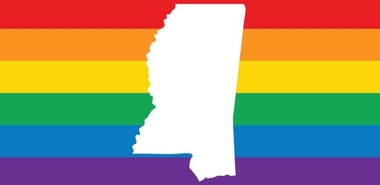Legal fight continues over anti-LGBT+ Mississippi law

JACKSON, Miss. (AP) — Wrangling continues over a Mississippi law that lets merchants and government officials cite their religious beliefs to deny services to same-sex couples.
Attorneys filed papers Thursday asking the 5th U.S. Circuit Court of Appeals to block the law .
Legal experts say it's the broadest religious-objections law enacted by any state since the U.S. Supreme Court legalized same-sex marriage nationwide in 2015.
The law championed and signed by Republican Gov. Phil Bryant in 2016 protects three beliefs: that marriage is only between a man and a woman, sex should only take place in such a marriage, and a person's gender is determined at birth and cannot be altered.
Attorneys for a dozen gay and straight plaintiffs who sued the state said in court papers Thursday that they are ostracized by the law, which started as House Bill 1523.
"HB 1523 is offensive to the rights of LGBT and other dissenting Mississippians and to the Supreme Court's command on this burning civil rights issue," they wrote.
The law would allow clerks to cite religious objections to recuse themselves from issuing marriage licenses to same-sex couples, and would protect merchants who refuse services to LGBT+ people. It could affect adoptions and foster care, business practices and school bathroom policies.
U.S. District Judge Carlton Reeves blocked the law from taking effect in July 2016, ruling it unconstitutionally establishes preferred beliefs and creates unequal treatment for lesbian, gay, bisexual and transgender people.
An appeals court panel lifted the hold on the law June 22, saying people who sued the state had failed to show they would be harmed. Plaintiffs want the whole appeals court to reverse that decision.
The panel did not rule on whether the law violates the constitutional prohibition on government establishing favored religious views. The panel said plaintiffs failed to prove they would be harmed by the law, "but the federal courts must withhold judgment unless and until that plaintiff comes forward."
____
By Emily Wagster Pettus. Copyright Associated Press.
The Gayly - 7/6/2017 @ 3:36 p.m. CST





